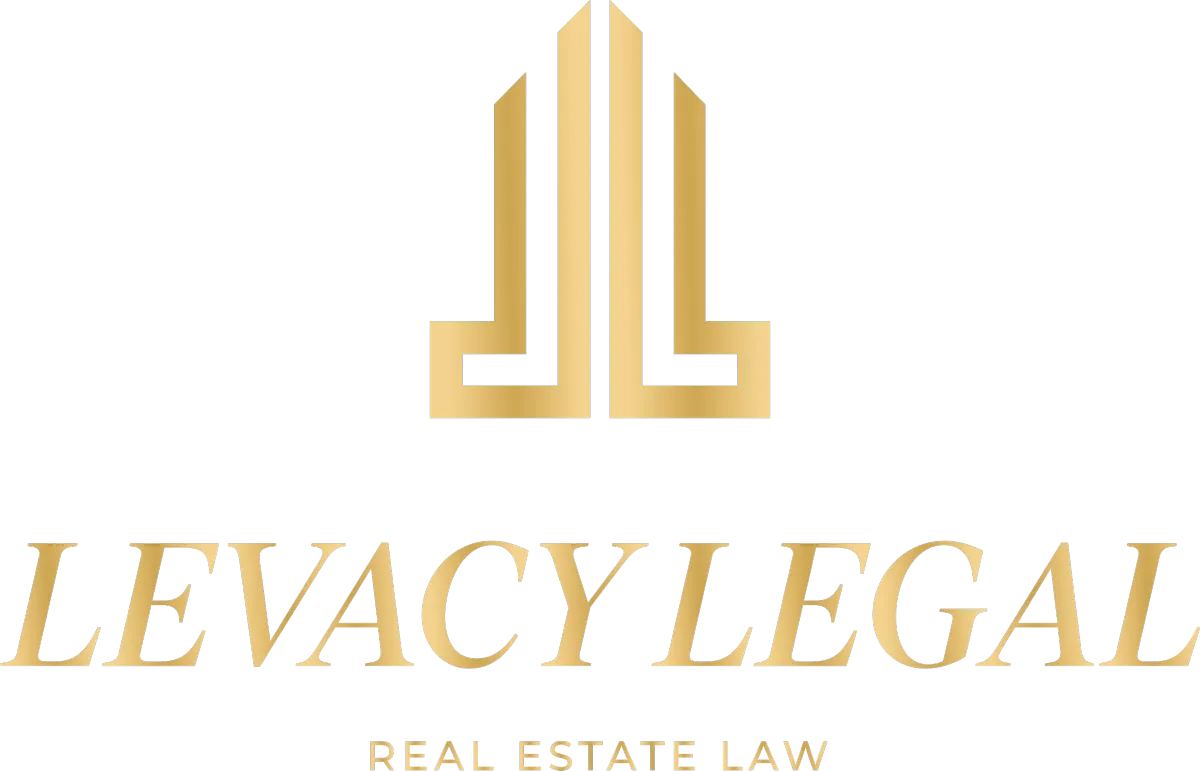A LAW FIRM FOCUSED ON REAL ESTATE AND BUSINESS
TO CONTACT US NOW, OR CALL US AT
CULTURE
Levacy Legal’s mission is to empower you to "Leave a Legacy", whatever that means to you. We help you create wealth by offering counsel and facilitating your real estate and business deals to close successfully while protecting you in the process. We are all in business because we want to make a lasting impact of some sort, and we understand the greater your resources, the greater your impact. Levacy Legal focuses on closing your deals, so you can focus on Leaving a Legacy.
Our firm, founded on the following core values, aims to deliver stellar legal services for real estate and business transactions:
BLOGS

Understanding Florida's Commercial Lease Agreements
Signing a commercial lease is a big step, whether you're opening a new business or expanding an existing one. But commercial leases can feel overwhelming with all their legal terms and fine print. Here’s a guide to help you understand the basics of Florida's commercial lease agreements – including rent structures, maintenance responsibilities, and the all-important termination clauses. Plus, we’ll cover a few tips on negotiating a fair lease and common mistakes to avoid.
Key Elements of a Florida Commercial Lease Agreement
Rent Structures
Not all rent agreements are the same. Here are a few common types of rent structures you’ll come across:
Gross Lease: Think of this as an all-inclusive package. You pay a fixed monthly amount, and the landlord takes care of expenses like property taxes, maintenance, and insurance. It’s great for budgeting since your rent stays consistent.
Net Lease: With a net lease, you’ll pay rent plus some extra property costs. This comes in a few flavors:
Single Net Lease (N): Here, you pay rent and a portion of property taxes.
Double Net Lease (NN): This includes rent, property taxes, and insurance.
Triple Net Lease (NNN): You cover rent plus most property expenses, including taxes, insurance, and maintenance. It’s popular for businesses with steady cash flow since costs can add up fast.
Percentage Lease: Typically used in retail, this includes a base rent plus a small percentage of your monthly sales. It ties costs to your revenue, which can be helpful if you have fluctuating income.
Maintenance Responsibilities
Who takes care of repairs and upkeep? That depends on the lease, so it’s worth clarifying:
Common Area Maintenance (CAM): If you’re renting in a shared building or plaza, you might pay a CAM fee, which covers things like parking lot upkeep, landscaping, or elevator maintenance.
Repairs and Upkeep: In some leases, tenants are responsible for repairs in their unit, while landlords handle big structural issues. Other leases work differently, so make sure you’re clear on who pays for what.
Termination Clauses and Renewal Options
Knowing when and how a lease can end is crucial for flexibility. Here’s what to check:
Early Termination Options: Some leases allow early termination, usually with a fee. This can be helpful if your business outgrows the space, but it can come with penalties.
Default Terms: These spell out what happens if either party breaches the contract. Knowing these terms helps you avoid surprises if something goes wrong.
Renewal Options: If you want the option to stay long-term, check if there’s a renewal clause. This locks in renewal terms ahead of time and often caps rent increases, helping you plan for the future.
Negotiating Tips
The lease terms aren’t set in stone; negotiation is often expected. Here are some points to consider:
Plan for Rent Increases: Ask about any potential increases in rent over the term. Some leases link these to inflation or market rates, so it’s wise to request a cap on increases.
Clarify CAM Fees: CAM fees can fluctuate. Ask for a breakdown of what’s included and, if possible, try to negotiate a cap on these increases to keep costs manageable.
Ask for a Build-Out Allowance: If you need to make changes to the space, see if the landlord will cover part of the renovation costs. This is common and can be a huge help, especially if the changes improve the property.
Look for Flexibility on Subleasing or Assignment: A sublease or assignment clause allows you to transfer the lease to someone else if your business needs change. This flexibility can save you from being locked into a long-term lease.
Common Pitfalls to Avoid
Even with a solid understanding of lease terms, here are a few red flags that can trip up business owners:
Vague Terms: Watch out for ambiguous terms like “reasonable expenses.” Ask for clarity on these terms to avoid misunderstandings.
Skipping Market Comparisons: Do some research to make sure you’re getting a fair rate for the area. Overpaying can strain your business, especially with high rent increases.
Not Reading the Fine Print: Commercial leases are often lengthy, but taking the time to read (or have a professional review) every clause can save you from costly surprises.
Final Thoughts
Signing a commercial lease in Florida is a big commitment, but understanding the basics will help you make a more informed decision. From rent structures to maintenance and renewal options, knowing what to look for (and what to negotiate) can set your business up for long-term success. And remember, a good lease isn’t just a legal formality – it’s an investment in your business’s future.
Need Assistance?
Complete the short form below to request assistance from our team.
We will be in touch shortly
I agree to terms & conditions provided by the company. By providing my contact information, I agree to receive communication from Levacy Legal, LLC.


